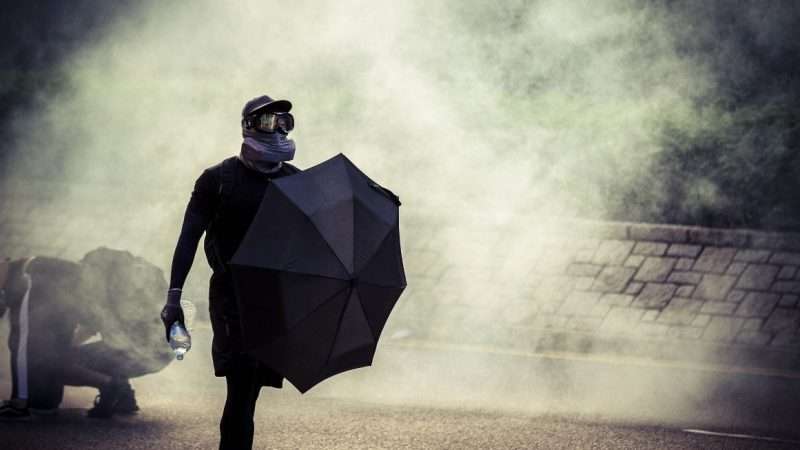
For those of us subject to his misrule, the second week of December did not seem a particularly auspicious week for New York City Mayor Bill de Blasio to start touting his experience with reopening public schools as a model for the rest of the country.
After all, my 12-year-old still hadn’t set foot on her campus for weeks, having attended class just seven times this academic year. My 5-year-old was back in kindergarten (after an arbitrary, de Blasio–imposed break), but only half time, because her school didn’t have enough personnel to process kids in groups larger than eight or nine. That half time quickly turned to no time when two staffers in a 1,000-student school tested positive for COVID-19.
Remote learning—the borderline oxymoronic term to describe classroomless education attempted via computer screen by tens of millions of K-12 students nationwide—continues to be the norm for more than three out of four New York City public school students, including a disproportionate share who are economically (and now academically) disadvantaged.
Yet de Blasio may have been onto something when he puffed out his chest to Politico and said, “Just do it! We have proven you can keep school safe if you are willing to adopt enough rigorous measures.”
And with the election of a teachers union–friendly Democratic president, Gotham’s policy of prioritizing guild wish lists over student and parental concerns may indeed become the national norm.
God help us all.
“Reopening schools is vital for the health and education of our children,” American Federation of Teachers President Randi Weingarten wrote in The Hill in late November. This sentiment was rather belated. Then–President Donald Trump and then–Education Secretary Betsy DeVos had been banging the school-reopening drum since July, when the science and global track record had already shown that kids in group settings were not catching, spreading, or suffering from the novel coronavirus in any statistically meaningful way. Weingarten’s conversion reflected three new political realities.
First, initial public school enrollment figures from this fall were brutal: 3–5 percent lower than the previous year, as parents opted for homeschooling or the more reliably open private sector. Fewer students mean less government funding, and eventually fewer teachers able to pay union dues.
Second, after eight months of widespread school closures concentrated in heavily Democratic jurisdictions, and with the electoral removal of a convenient White House scapegoat, unions found themselves on the receiving end of withering parental anger.
De Blasio delayed the beginning of the school year twice in September (both times at the last minute), then shut down all of the city’s schools in mid-November (once again at the last minute), even though the positive-test rate among randomly tested students, teachers, and staff was a miniscule 0.18 percent. The backlash was immediate.
That shutdown was based on a 3 percent positive-test threshold for the entire city, a “community spread” figure much lower than the standards used by the state of New York and virtually any other country you could name.
On the Friday before the shutdown, local union honcho Michael Mulgrew, whose summer negotiations with de Blasio produced both the unusually low threshold and the two school-year delays, told The New York Times, “When the mayor told us about the 3 percent, we went to our doctors, and they said it was an appropriate number.” Within days, the outpouring of bile, evident daily in the Times and on the local NPR affiliate, had Mulgrew furiously backpedaling, pinning the one-size-fits-all standard on de Blasio and saying he favored a more targeted approach. Less than three weeks after the shutdown, the mayor abruptly announced that the 3 percent figure had been scrapped and that schools would be reopening for five days a week when possible.
Which brings us to the third main reason that unions and the politicians they bankroll had started singing a different tune by December: With the absence of Trump and the prospect of trillions in new coronavirus relief money coming from Congress, the public education industry sensed a golden opportunity to keep teachers whole, on terms written by them, even if most students remain in remote-learning hell.
“Our leaders must use every tool at their disposal to reduce the spread of the coronavirus and pass a relief package that includes funding for states, schools, businesses, and the Americans who now struggle with rents, nutrition insecurity, and student loans,” Weingarten wrote. “It is why we need a national blueprint that has these objectives to safely reopen schools.”
In case the rattling of the cup wasn’t loud enough, the leaders of the country’s three largest school districts—New York, Los Angeles, and Chicago, the latter two of which have been and likely will remain shuttered for many months—penned a joint op-ed piece in The Washington Post with the unsubtle headline: “We need a Marshall Plan for our schools. And we need it now.”
Do you know who has not required a Marshall Plan to open up K-12 instruction facilities throughout the country during this pandemic? Catholic schools. Charter schools. Ad hoc “pods” of parents pooling resources and time (as we have with our 5-year-old) to make up for what the local public system has failed to deliver despite its guaranteed tax revenue. Where teachers unions hold most sway, kids get the least in-person instruction. And parents even in the bluest of cities, I can tell you, are noticing.
The hypocrisy is in some ways even more grating than that of politicians who impose COVID-related bans on activities they are immediately seen enjoying. In Chicago, for instance, so many public school teachers (between a quarter and a half) are demanding to teach remotely that even when in-person classes are scheduled to resume, many will be “supervised” by non-teachers in classrooms as the kids communicate via computer with remote teachers receiving the same compensation as last year. No wonder they need a Marshall Plan!
New York City kids, in the name of safety, have been herded into “Learning Development Centers,” which have less stringent COVID-19 protocols than the schools that were shuttered in the name of “science.” There, supervisors spend their days wrangling competing Zoom meetings with faraway teachers.
The damage that can be done to elementary school–age children by monthslong separation from their peers can be heartbreaking, bordering on horrifying. My nieces and nephews in France and Switzerland, like my friend’s kids in England, all go to school without wearing masks, without having their class sizes lopped by one-half to two-thirds, and without teachers unions calling the shots and fighting for stay-at-home pedagogy while crying out for more money.
On a December 16 conference call, President-elect Joe Biden told the majority of the country’s governors, “I know it’s going to be controversial for some of you—but I’m going to ask that we’re going to be able to open schools at the end of a hundred days.” I am glad for the sake of a mangled generation of kids that Biden caught up to where his predecessor was five months earlier. But if New York City is indeed the model, the most “open” thing will be the government’s checkbook—that and parents’ web browsers as they explore every option for their kids that doesn’t include a teachers union.
from Latest – Reason.com https://ift.tt/3pko40U
via IFTTT




